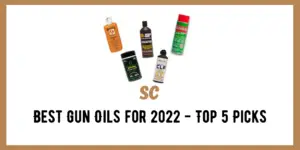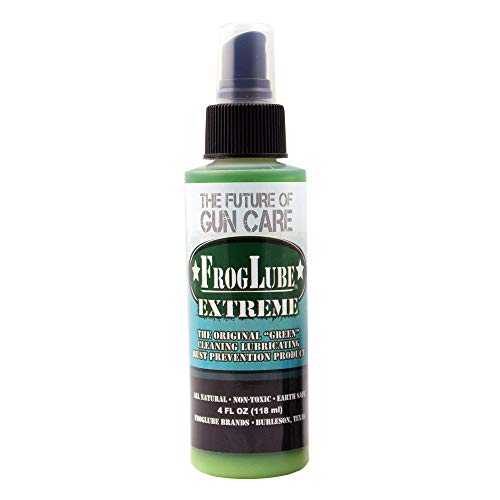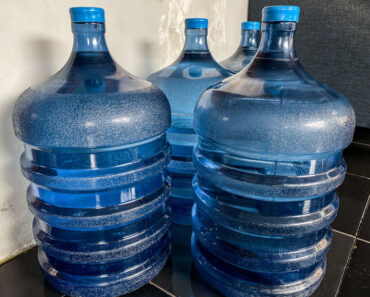One thing that I have learned over my lifetime of owning and shooting guns of all kinds is the importance of proper maintenance.
Like any machine tool, a gun requires attention to protect these valuable investments. One of the most important aspects of maintaining a gun is the choice of the right gun oils, cleaners, and lubricants.
Gun oil is a special lubricant formulation designed specifically for firearm applications. There are many lubricants on the market meant for a variety of uses. Choosing the right gun oil is critical due to the temperatures and forces involved in shooting. Not every lubricant can take these extreme temperatures and conditions.
Over the years, I have used a range of different products to clean, lubricate, and protect my guns. As technologies improve, lubricants also improve. I am constantly re-evaluating the products I use on my guns, which led to this article.
There are more and more formulations for gun oils and lubricants than ever before, and finding the best gun oil that performs for you can be challenging.
What is Different About Gun Lubricants?
Gun oils and lubricants perform a range of duties when used to protect your gun.
First and foremost, gun oils lubricate the moving parts of your firearm to keep them operating smoothly and effectively. Gun oils, greases and cleaners also protect your gun from rust, dirt, grime and other contaminants that are a natural occurrence when guns are used.
When I talk about gun oils, I tend to generalize the term to include oil-based lubricants, cleaners and solvents, and gun grease. These are all different products that are often confused or used interchangeably.
It is important to understand the differences in these products, how they are used, and where they are appropriate.
Gun Oils
Products marketed as gun oils typically are petroleum-based lubricants. There are a few synthetic lubricants being sold as gun oil.
There are thousands of petroleum-based lubricants available, many of which you probably have around your home or in your shop. Some of the more common include 3-1 oils, motor oils, and specialty lubricants such as WD40.
Many of these types of lubricants can actually attract dirt.
Gun oil falls into these categories, but has a few basic differences. The most important difference is the refinement of the oil and the additives that it contains.
Not all oil is equal, and what you put on and in your gun makes a difference.
Most gun oils are typically more highly refined and have a higher purity level than other traditional lubricants. Many manufacturers also include additives to their gun oil to help prevent and protect against rust and corrosion.
In many cases, it is the additional additives that make a crucial difference in the products.
Note: Even the best gun oil won’t work if you don’t clean the hard to reach places in your firearm on a regular basis.
Gun Grease
The primary difference between gun grease and gun oil is viscosity. Viscosity is a measure of the “thickness” of the oil. Gun oil is typically less viscous than gun grease. Gun grease tends to be thicker and stickier than gun oil, giving it some advantages under certain conditions.
Gun grease is much better at resisting harsh or extreme conditions than gun oil. If you expect to take your gun into environments that push the limits, using a bit of gun grease is probably a good idea.
There are no set circumstances where gun grease is preferable over gun oil. In most instances, the choice is a matter of personal preference.
Solvents and Cleaners
Solvents and cleaners should not be confused with lubricants. Most gun solvents are designed to remove the after products of firing a gun as well as remove dirt, dust, and debris that may accumulate.
Firearms, when fired, tend to accumulate powder fouling from unburned powder or burned powder residue. Bullets, as they move down the barrel, leave traces of copper and lead in the barrel bore and on other moving parts of the firearm. Over time, these accumulated remains can affect both accuracy and smooth operation.
Solvents and cleaners are formulated to dissolve, soften, and remove these contaminants from your guns. It should be understood that these products are, by and large, not lubricants and should not be counted on to either protect your gun or lubricate the moving parts.
CLPs (Cleaners, Lubricants, and Protectors)
There are some products on the market commonly referred to as CLP. These products are intended to be a multi-purpose answer to gun maintenance. These products contain solvents that help remove carbon and other buildups.
Most CLPs also have a gun oil component that acts as a lubricant. These CLP products also include the addition of specialty products that inhibit rust and corrosion.
I admit that I use CLP products on my guns. The convenience is almost too good to pass up. I tend to carry a spray can of CLP in my range bag. A quick squirt of CLP during a long session at the range can keep things running smoothly without having to do a complete breakdown and cleaning of your gun.
At best, CLPs are a compromise. Any product that promises to perform so many functions has to have some shortcomings. Some CLPs are better at cleaning guns than lubrication. A few are better suited to protecting your guns than cleaning your firearms.
It is important to understand the strengths and weaknesses of any product you choose to use to protect your firearms.
Different Guns, Different Products
I have a friend who has been shooting and maintaining guns longer than I have. That makes him really old. For many years, his go-to lubricant for his guns was his own concoction.
He routinely mixed a solution of motor oil and acetone to clean and lubricate his guns. This worked well on his traditional rifles and pistols. This worked until he got his first polymer-framed pistol and begin regularly cleaning it with his special blend. He got some unexpected results.
The point is, that some products should not be used on some guns. Many new materials being used to make parts of modern firearms can be damaged by the use of the wrong solvents or lubricants.
Make sure that whichever product you choose is compatible with the materials in your gun.
The List – Gun Oils, Greases, and CLPs
I chose a variety of different oils, greases, and CLP products to review for this article. I routinely use many of these products, so my knowledge is first-hand. Some of the products were new to me and required some testing and evaluation before I could make an informed opinion.
What you won’t find on my list are any “magic products” that often come from unreliable sources. I tend to rely on proven products from known and respected manufacturers. I don’t like putting “secret ingredients” on my valuable guns.
1. A Proven Product – Hoppe’s Number 9 Lubricating Oil
I don’t think I know a single gun owner who doesn’t have a bottle of Hoppe’s Number 9 lubricating oil on their workbench or in their range bag.
Hoppe’s Number 9 is iconic amount gun owners. You can even get an air freshener for your car or truck that smells like Hoppe’s Number 9.
Hoppe’s Number 9 is time and battle proven to lubricate and protect valuable firearms. For those of you that don’t know, the correct pronunciation of Hoppe’s is “Hopp – ee’s”. Hoppe’s is reliable and consistent. It won’t dry up easily, is environmentally stable, and has excellent protective characteristics.
You can use Hoppe’s Number 9 on all of your firearms. The ingredients of this lubricant are safe for any material used in modern firearms. The main ingredient in Hoppe’s Number 9 is mineral oil.
If you use Hoppe’s Number 9 routinely, you should clean your firearms regularly because Hoppe’s Number 9 can turn gummy if left to build up with carbon and other shooting by-products.
Pros and Cons
Like any product, Hoppe’s has its advantages and disadvantages. I believe the advantages outweigh the disadvantages by a wide margin.
Pros
- Long-lasting protection for your guns
- One of the best values on the market for a gun oil
- Can be used on other gear such as fishing reels and rods
- Considered non-toxic and environmentally friendly
Cons
- Can build up over time and turn gummy if you don’t clean your firearms regularly.
- Has a strong odor that may annoy some people. On the other hand, some of us wear it as cologne.
In the end, Hoppe’s Number 9 is a proven and time-tested lubricant that you can trust. Shooters and gun owners have been using Hoppe’s Number 9 for over 100 years, and it continues to be one of the most popular gun oils on the market and is considered by many to be the best gun oil on the market.
If you can deal with the strong smell, this is still one of the best gun oils out there.
Last update on 2022-08-20 at 03:02 / Affiliate links / Images from Amazon Product Advertising API
2. Lucas Gun Oil – Not For Your Car
Lucas products are well known among car enthusiasts, especially those who enjoy high-performance machines. Lucas Oil has made a name for itself by providing specialty lubricating products to many other industries as well. The shooting sports are no exception.
Many major firearms manufacturers use Lucas Gun Oils as their factory lube for new guns.
I don’t know if this is a testament to the quality of the product or to some highly successful marketing. However, I do know that Lucas Gun Oil has a great reputation among both casual and professional shooters.
Many hunters favor Lucas Gun Oil because it is an odorless formulation.
Stalking game animals can come down to the smallest details. Scents and odors can be critical when hunting wary animals that rely on their sense of smell. This gives hunters one extra advantage that can spell the difference in a successful or unsuccessful hunting trip.
Pros and Cons
Lucas Oils’ knowledge and expertise in specialty lubricants is a critical factor in getting this lubricant on my list.
Considering that many car enthusiasts trust Lucas to protect their multi-thousand dollar racing machines, I feel confident in trusting my guns to Lucas Oil products. This gets Lucas gun oil into my list of the best gun oils available.
Pros
- The viscosity of Luca Gun Oil is excellent. It is thin enough to spread evenly, creating a protective layer and thick enough to stay when it needs to stay.
- The needle oiler bottle is ingenious and allows you to put lubricant in exactly the right spot in the right amount in the tightest confines of your gun.
- Lucas Gun Oil is long-lasting to give you excellent protection and lubrication, even in the most extreme temperatures and conditions.
- Lucas doesn’t use any solvents or additives that can expire over time, so this is a product that is safe for long-term storage to put in your range bag and forget until you need it.
Cons
- Lucas Gun Oils can be a bit on the expensive side.
The major advantage in my book for using Lucas Gun Oil is the reputation of the company and the fact that this is an odor-free lubricant.
Having spent some time in the field hunting coyotes who have a keen sense of smell, I can appreciate having one less odorant to worry about when hunting.
Last update on 2022-08-20 at 02:33 / Affiliate links / Images from Amazon Product Advertising API
3. Militec-1 Gun Oil – The Premium Choice
As you might guess from the name, MiliTec-1 gun oil is designed for the extreme conditions that military and law enforcement firearms often encounter. Many users of MiliTec-1 gun oil swear that the changes they see in the way their firearms operate are astounding.
The creators of Militec-1 claim that if their product is used according to the instructions, Militec-1 is much more than a temporary coating on metal surfaces. The instructions for using Militec-1 are very specific and should be followed precisely to get the full benefit of this amazing product.
I have a .300 Blackout SBR that is suppressed. This gun, because of the subsonic ammunition and the short barrel, is very finicky about being clean to operate properly. It will operate for a while with other oils, but for consistent and reliable operation, I have switched this gun to Militec-1 gun oil.
Pros and Cons
Who knew that a lubricant that came out of the logging industry would prove to be one of the top performing gun oils in the business and a mainstay for military use?
The only reason that this product doesn’t rank higher on my list is the price.
Sure, it doesn’t seem like a big deal, but for some people, it can be a show-stopper when there are other products that do much the same thing. However, if your gun absolutely must run in every imaginable situation, this is the product to choose.
Pros
- This product works as advertised. If you want the best gun oil on and in your firearm, this is the gun oil to choose.
- This gun oil does work better, in my opinion, than most other gun oils.
- Help prevent friction on metal surfaces that are treated properly. Reduced friction means less wear and tear on the metal surfaces that contact one another.
- Militec-1 is a metal conditioner. Once applied correctly, it can be wiped dry, and the metal surfaces of your firearms continue to reap the benefits.
Cons
- This product is expensive compared to similar gun care products.
- You must follow the directions for using Militec-1 to get the full benefits of the product.
I currently use Militec-1 on only one of my rifles. However, I suspect that moving forward, I will eventually start applying this product to all my guns as well as some of my other precision tools and equipment.
Militec-1 gets high marks and ranks as one of the best gun oil products.
Last update on 2022-08-20 at 02:33 / Affiliate links / Images from Amazon Product Advertising API
4. Gunfighter Gun Oil – Non-toxic, Biodegradable, Synthetic
In a gun world dominated by petroleum-based lubricants, Gunfighter Gun Oil is a nice alternative.
This product is 100 percent synthetic that is biodegradable, and non-toxic. You don’t have to worry about yourself or your environment when you use this product.
Gunfighter Gun Oil offers a number of great benefits when used on your prized guns. The product doesn’t settle or separate over time like many synthetic gun lubricants. You won’t have problems with shellacking or tackiness as the product ages on your firearms. Gunfighter Gun Oil is odorless and non-toxic.
This US-based company is owned and operated by shooting enthusiasts who understand the need for a quality alternative product for lubricating fine firearms.
If you want to eliminate those dangerous petroleum-based lubricants from your life, Gunfighter Gun Oil is a great choice.
Pros and Cons
I have always been a little leery of synthetic lubricants. I am less worried about them now than I was many years ago when they first appeared on the market.
The technologies have aged and matured to the point that I can appreciate the benefits they bring to the table. In the end, synthetics may be some of the best gun oils available.
Pros
- Non-toxic and biodegradable
- Odor-free alternative for a gun lubricant
- 100 percent synthetic
- For a synthetic lubricant, Gunfighter Gun Oil has excellent temperature resistance
Cons
- Gunfighter Gun Oil is a biodegradable synthetic product, and it will break down over time. This is especially true in extreme environments. You may need to re-apply oil to your firearm on a regular basis if you shoot a lot or work in less-than-perfect weather.
For the average shooter who isn’t out in the rain with their gun on a regular basis, this may be the best gun oil you can choose.
The wide temperature range is a benefit for those who hunt in extreme temperature environments. Casual shooters who need to protect their guns during long storage sessions will also find Gunfighter Gun Oil a good choice.
Last update on 2022-08-20 at 02:33 / Affiliate links / Images from Amazon Product Advertising API
5. FrogLube Extreme – Another Green Solution
I was at ShotShow in 2009 when Froglube was first being shown and sold.
I was amazed when I heard about this plant-based product that was non-toxic, biodegradable, and USDA certified. I couldn’t understand why a gun lubricant was USDA certified until I saw one of the sales reps squirt a few drops on his finger and confidently lick it off.
That did get my attention, but I was still concerned about how well such a formulation would work in the demanding conditions a firearm can create when it is fired.
I collected enough free samples to come home and do some testing of my own. In the end, I was quite impressed, and for many years Froglube was my go-to gun oil.
I did discover a few downsides to Froglube. Froglube is a water-based biodegradable product.
It will freeze if cold weather temperatures get low enough. If you are deer hunting in extreme conditions that include freezing temperatures, Froglube might not be a good gun oil for your situation. You would probably be better off with a petroleum-based product.
Pros and Cons
Among the different types of gun oils, Froglube is still one of my favorites.
Even with its known shortcomings, I use it on many guns, especially those that are going in storage for a while in a protected environment. I like the non-toxic formula, and I actually think it smells good.
Pros
- USDA-certified plant-based non-toxic formula.
- I consider Froglube the best gun oil in the biodegradable non-toxic category.
- When applied properly, creates a very slick dry surface that doesn’t attract dirt.
- I think it reduces friction better than a lot of petroleum-based gun lube products.
Cons
- It will degrade over time and has a strong odor.
- Froglube will freeze, which can cause problems under some hunting conditions.
Many users report that guns that are treated with Froglube and stored for long periods tend to have issues with the lube turning gummy or sticky.
I have never had that problem. I don’t slather my guns in lube to store them. I follow the product directions. I apply, let the product sit and then wipe all the parts dry.
Last update on 2022-08-20 at 02:33 / Affiliate links / Images from Amazon Product Advertising API
Will One Gun Oil Do Everything?
When you start buying gun oil, it is important to remember that no single product will do everything you need to maintain and run your guns.
Even the best gun oils aren’t meant for packing away guns for long-term storage. Gun oils are meant to help prevent wear and tear on the moving parts of your guns when they are being shot.
What About Cleaning?
Gun oil is typically not used for cleaning. A good gun solvent or a combination product such as a break-free CLP are good all-in-ones that make cleaning easier and do help with lubrication on your guns.
However, like gun oil, all-in-one CLP products are not meant for long-term storage and don’t provide all the protection you want for operating your firearms.
Gun Oil. Use it For What it Does Best.
In the end, gun oils are meant to protect and lubricate the moving parts of your firearm. They aren’t meant for protection or cleaning.
This translates to having an assortment of products for your firearm maintenance needs.



















![Kevin Estela and the Flip Flop BBQ Guy | Grilling Technique [PODCAST] Kevin Estela and the Flip Flop BBQ Guy | Grilling Technique [PODCAST]](https://survivalcove.com/wp-content/uploads/2021/10/Packing-Goats-Hunting-Survival-370x297.jpg)






















